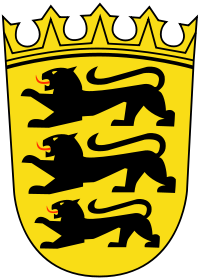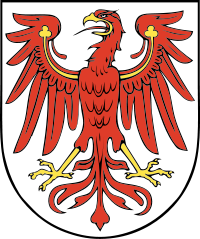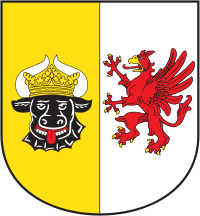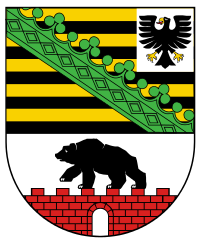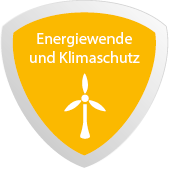Die nachfolgenden Inhalte stammen aus dem Kooperationsprogramm "Interreg CENTRAL EUROPE" (genehmigt am: 16.12.2014).
Kurzbeschreibung
Actions to improve territorially based low-carbon energy planning strategies and policies supporting climate change mitigation will be supported.
Förderziel
Actions shall contribute to increasing the capacities of the public sector and related entities dealing with territorial energy planning as well as those dealing with mobility planning in functional urban areas, targeting the reduction of CO2 emissions.
Fördergegenstände
Demonstrations-, Modell- und Pilotvorhaben, Information, Kommunikation, Beteiligung, Strategieentwicklung, Konzept-, Teilkonzepterstellung, Vernetzung, Kooperation, Wissenstransfer
Zuwendungsempfänger
Among others:
- Local, regional and national public authorities.
- Regional development agencies.
- Energy operators, energy management institutions.
- Enterprises including SMEs.
- Public transport operators.
- Associations.
- Innovation agencies.
- NGOs.
- Financing institutions.
- Education and training organisations as well as universities and research institutes.
Förderfähige Gebietskulisse
Förderfähig sind die Bundesländer: Baden-Württemberg, Bayern, Berlin, Brandenburg, Mecklenburg-Vorpommern, Sachsen, Sachsen-Anhalt, Thüringen.
In Baden-Württemberg: Stuttgart, Karlsruhe, Freiburg, Tübingen.
In Bayern: Oberbayern, Niederbayern, Oberpfalz, Oberfranken, Mittelfranken, Unterfranken, Schwaben.
In Sachsen: Dresden, Chemnitz, Leipzig.
Kooperationsmöglichkeiten bestehen mit folgenden Staaten: Österreich, Tschechien, Ungarn, Italien, Polen, Slowenien, Slowakei.
Achtung: Bitte Prüfen Sie im Kooperationsprogramm (CP, KP) welche Teilräume der Staaten förderfähig sind.
Art der Unterstützung
Non-repayable grants
Beschreibung
Within the supported actions different types of outputs can be obtained. Emphasis is put on policy learning and/or implementation-oriented approaches at transnational level (novel technologies, etc.). These can include the development and implementation of strategies and action plans, the development, testing and implementation of tools, the preparation of investments and leverage of funds, implementation of pilot actions - including pilot investments - as well as capacity building also through training.
Examples of actions supported are:
- Developing and implementing integrated territorial strategies and plans to increase the use of endogenous renewable energy potentials and to improve regional energy performance.
- Designing and testing concepts and tools for the exploitation of endogenous renewable energy resources.
- Developing and implementing territorial strategies to improve the energy management in both the public and the private sector (especially in SMEs).
- Developing demand-focused strategies and policies to reduce energy consumption (e.g. smart metering, distribution of smart consumer applications, etc.).
- Developing and testing solutions for improved interconnections and coordination of energy networks targeting the integration and use of renewable energy sources.
The implementation of pilot actions and exchanges of good practices will stimulate and trigger investment towards low-carbon development. Coordinated strategies for improved interconnections of energy networks will enable a better integration of renewable energy sources into the existing distribution networks and consequently open the opportunity for an increased production and use of renewable energy.
Hinweis: Weitere förderrelevante Informationen zur Maßnahme finden Sie im Kooperationsprogramm (CP, KP) S. 40-45.
Zielgruppe
They include both public and private actors, such as energy and public transport operators, policy makers and planners, energy distributers, infrastructure providers and other local and regional energy actors as well as enterprises including SMEs. Target groups include all population groups which are benefitting from an improved regional and local energy performance as well as users of improved low-carbon public transport systems in functional urban areas which are affected by the issue.
Zentrale Zuwendungsvoraussetzungen
Applications focussing on purely academic cooperation or basic research as well as on a mere exchange of knowledge and networking will not be funded.
All operations receiving funds have to meet the following horizontal quality requirements:
- Transnational and territorial relevance.
- Partnership relevance.
- Concrete and measurable results.
- Durable outputs and results.
- Coherent approach.
- Sound project communication strategy.
- Effective management.
- Sound budget.
Wichtige weitere Informationen zu Zuwendungsvoraussetzungen, wie z. B. die Mindestanzahl an Projektpartnern, finden Sie in den zugehörigen Unterlagen und im Kooperationsprogramm (CP, KP), S. 98-100.
Auswahlverfahren
The selection of operations will be carried out in application of Article 12 of the European Territorial Cooperation (ETC) Regulation following a standardised assessment procedure.
Projektauswahlkriterien
Detailed quality assessment criteria will be laid down and made available to applicants in call-specific documents. The assessment will be conducted by qualified assessors with the required expertise.
Informationen zu den Auswahlkritierien und der Vorgehensweise bei der Projektauswahl finden Sie im Kooperationsprogramm (CP, KP), S. 27-28 sowie auf der Webseite des Programms.
Laufzeit
Start der Maßnahme: 01.01.2014
Ende der Maßnahme: 31.12.2023

